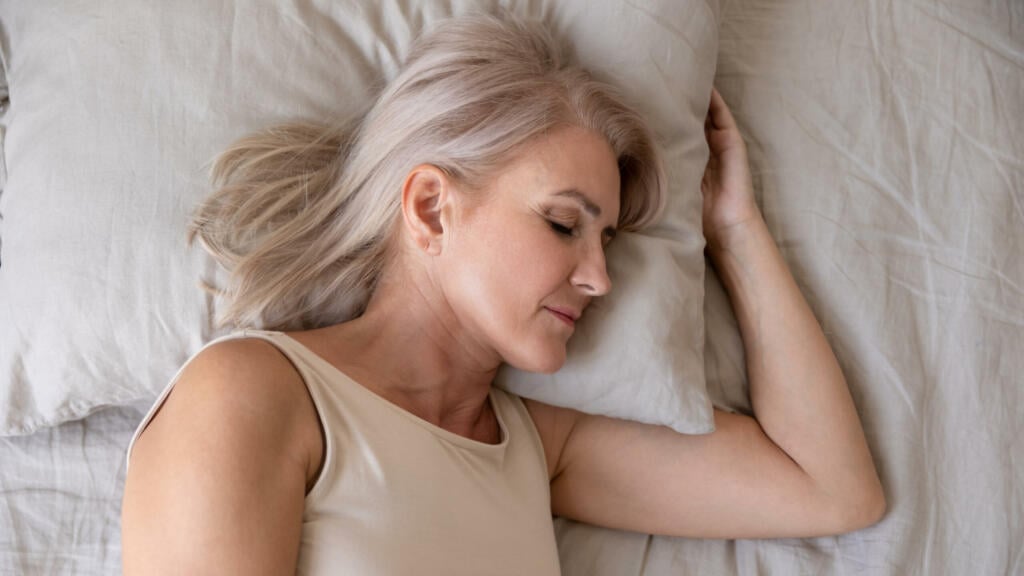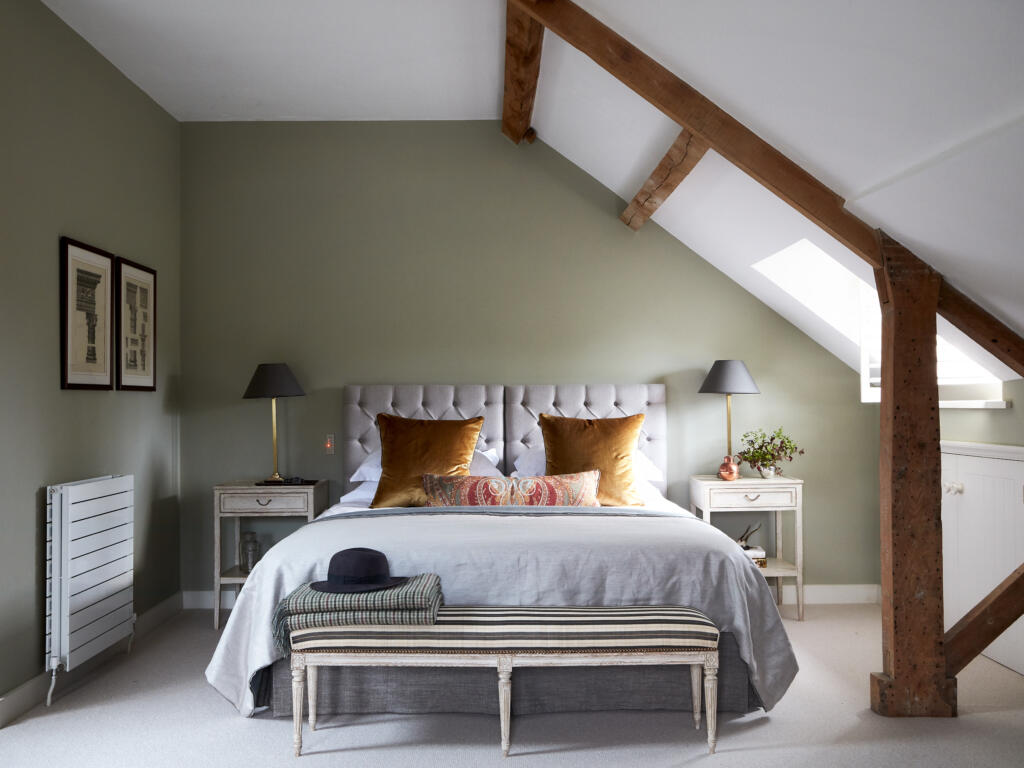
10 sleep truths from the experts
Rebecca Frew
Sleep experts explain what to do about sleep problems, why sleep is so important and what you can do to improve its quality.
Sleep – it’s that wonderful elixir that’s vital to how you feel, how you function and your general sense of wellbeing. When sleep evades you, you can feel tired, irritable and out of sorts – until you get a good night’s sleep again. The central role sleep plays in your life is reflected in scientific research on how it affects your overall health.
There are lots of factors, including age, that can affect how well you sleep. As you get older, our circadian rhythm – the body’s internal clock – shifts, meaning you tend to fall asleep earlier and wake earlier. This can lead to disrupted sleep, especially if you don’t adjust your bedtime to match the change in your body clock.
With studies showing seven in ten (68%) of Britons wake feeling tired in the mornings, we asked the experts what you really need to know about sleep.
Sleep – it’s that wonderful elixir that’s vital to how you feel, how you function and your general sense of wellbeing. When sleep evades you, you can feel tired, irritable and out of sorts – until you get a good night’s sleep again. The central role sleep plays in your life is reflected in scientific research on how it affects your overall health.
There are lots of factors, including age, that can affect how well you sleep. As you get older, our circadian rhythm – the body’s internal clock – shifts, meaning you tend to fall asleep earlier and wake earlier. This can lead to disrupted sleep, especially if you don’t adjust your bedtime to match the change in your body clock.
With studies showing seven in ten (68%) of Britons wake feeling tired in the mornings, we asked the experts what you really need to know about sleep.
 Credit: Shutterstock / Verin
Credit: Shutterstock / VerinIt’s important to note that sleep is different for everyone – it really is as individual as you are. The following information is to be used as a guide. If you have any concerns, consult your GP before changing your routine.
Many of us simply don’t prioritise sleep. We do all the other things we know we need to do in order to keep healthy, while pushing sleep to the bottom of the list. And yet we need sleep to function at all.
In fact, it’s a basic, fundamental human requirement says Lisa Artis, Deputy CEO of The Sleep Charity. “We need sleep as a base layer in order to be able to eat well and exercise. So we shouldn’t scrimp on sleep,” she says. “It should be up there as one of the most important things we can do for our health and wellbeing, because it feeds into all the other elements we do daily.”
There’s a close relationship between sleep and mental health, with some people finding they can’t sleep because they’re worrying about not sleeping – a vicious cycle. Understanding the basics of sleep can help to put your mind at greater ease.
Your circadian rhythm governs your sleep/wake cycle. It’s largely tied to the production and suppression of melatonin, a hormone our brain releases which plays the main role in your sleep. It responds to changes in light and tells you when it’s time to nod off.
 Credit: Shutterstock/ Billion Photos
Credit: Shutterstock/ Billion PhotosOnce you’re asleep, you go through several sleep cycles. The number of hours you sleep determines how many of these you experience. There’s no “normal” – it varies from person to person.
The two main phases of sleep are Rapid Eye Movement (REM) sleep, when you have your most vivid dreams, and non-REM sleep, which consists of three different stages:
You move through the stages and back into REM sleep several times per night. When one cycle ends, another begins, and it’s normal to wake briefly during the light sleep phases.
Sleep stages are not equal and as you go into the latter part of the night, you tend to have more light and REM sleep.
Scientists understand that REM sleep is the time when we process memories and emotions from the day. As we get older, the time we spend in REM sleep decreases. Research has shown that during our 20s we spend up to 20% of our sleep in this phase; by our 70s, it can drop to 5%.
Sleep cycles are as individual as you are – no two people’s cycles are the same. There are lots of factors which affect your own personal pattern, including what’s happened during the day, medication you’re on and cultural differences – such as what time people in different countries go to bed.
When you’re not in deep sleep, light and noise can rouse you more easily. However, most of the time you won’t even know, says Artis. “You wake up, have a quick scan of the room, and if nothing’s changed, you just turn over and go back to sleep.”
However, if you’re finding you’re persistently waking up and unable to get to get back to sleep after about 15 minutes, you could try getting up and leaving your bedroom to do something mindless, says NHS consultant and sleep physician Dr Peter Venn.
“You don’t want your bed to be a place you associate with somewhere you don’t sleep. By getting out of bed you’re not taking away sleep time, you’re taking away time lying awake,” he advises.
 Credit: Shutterstock / Amenic181
Credit: Shutterstock / Amenic181Soothing activities to try might include wiping down surfaces or reading a book. And keep the lights as low as possible to support high levels of melatonin, the vital hormone that helps you sleep.
Being a snorer or sleeping next to one is not fun for anyone. Venn says it’s an issue he comes across a lot.
“Snoring is a large chunk of the problem that’s seen in sleep disorder centres by doctors,” he says. “Not only does it keep partners awake, it’s also detrimental to cardiovascular health in the long-term if severe.”
Loud snoring can also be a sign of sleep apnoea, where your breathing repeatedly stops and starts while you sleep. This can cause tiredness and raises the risk of long-term health problems, so is important to get checked out.
The NHS has advice on what to do if snoring is a problem, ranging from relatively simple lifestyle changes (losing weight, sleeping on your side) to seeing your GP in case a medical device might help.
If you notice you’ve been struggling with sleep for a while, you might want to think about putting some strategies in place to address sleep disturbances.
Artis says: “If you think you haven’t slept well for a few days, think about what has changed in your life. Could it be what you are eating? Are you getting enough exercise? Have you been particularly stressed about something?”
Strategies might include things like aiming to go to bed and get up at the same time every day. It can be good to keep to similar hours for this to help your body settle into a sleep/wake cycle.
What you do throughout the day can affect your sleep, including what you eat and your physical activity levels. Having a routine from when you wake up to when you go to bed helps your body understand when it’s time for sleep.
Have a look at your bedroom and ask yourself if it meets your sensory needs – is it comfortable, calm and relaxed? Think about whether the place where you sleep is dedicated to sleeping, or whether there are any distractions in the room that should be put away before bedtime.
Make sure your environment is safe. Remove any hazards that could cause you to trip or fall in the dark. It might be worth installing a dim light within easy reach of your bed so you can see easily if you do need to get up in the night.
 Credit: Shutterstock / New Africa
Credit: Shutterstock / New AfricaWhen bedtime is getting close, dimming the lights can help stimulate the natural release of melatonin in your body. It’s a good idea to keep devices out of the bedroom and avoid using them for an hour before bed because most emit a blue light which interferes with melatonin activity and disrupts sleep.
We also tend to sleep better in cooler environments, so aim for an optimal temperature in the region of 16-18 °C (61-64°F). For women, the menopause can bring abrupt changes in body heat that disturb sleep, but there are things that can help, according to sleep expert Dr Lindsay Browning.
“Keep your bedroom as cool as possible,” she says. “Use layers of nightwear and bedding that you can easily strip off, and have some spare pyjamas within easy reach so you can change them in the night.”
Our exercise needs change over the years, but we still need to incorporate a bit of movement into each day. The good news is that it doesn’t have to be strenuous.
Here are a few examples that should be accessible to most:
Avoid doing too much when it’s close to the time you would usually wind down. Exercise is best incorporated earlier in the day, unless it’s a particularly relaxing type such as some gentle, slower forms of yoga.
Stick to set meal times, as eating at different times of day can disrupt your circadian rhythm. Try to avoid eating late in the evening, or too close to bedtime, as this can also disrupt your sleep.
Artis advises staying away from fatty, processed foods at dinner time as well as keeping alcohol to a minimum.
“Having an alcoholic drink with your evening meal is fine, as long as you’re not using it as the only way that you can relax and get to sleep,” she says.
“Alcohol makes sleep very fragmented, and that means we don’t get the deep restorative sleep we need.”
You can read more from our experts on their top sleep tips.
If you’re still having sleep issues The Sleep Charity has a helpline, 03303 530 541 (available 7-9pm on Sunday, Monday, Tuesday and Thursday and 9-11am Wednesday). You could also speak to your GP for advice or referral to a specialist.

Written by Rebecca Frew she/her
Published: Updated:
Becky Frew has written various articles for newspapers and magazines focusing on fitness, is a qualified run leader, and a certified sleep talker trainer who loves to help advise people how they can nod off easier. When she is not writing or reading about fitness, she is at hot pod yoga, bounce class, training for an ultra-marathon or booking anything with a medal and free food at the end.

Rebecca Frew

Steven Shaw

Ruth Tierney

Joy Archer

Joy Archer